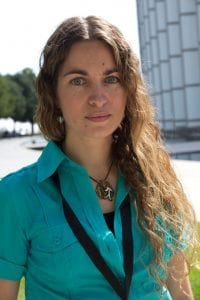Dan Kodroff, our grad student here at Penn State, is a corresponding author on the new paper reporting on the backgrounds for the LZ dark matter experiment during the “First Science Run” (SR1), which we recently reported on (LZ First Science Run Results!). This is a fantastic achievement for Dan, as being a lead author on such a big and important paper in LZ as a grad student is quite uncommon!
Particles such as gammas, electrons, neutrons, and neutrinos, can create signals in the LZ detector that can look like dark matter – we call these “backgrounds”. Understanding these backgrounds is essential in order to look for dark matter. In this paper, we report our expected and measured backgrounds, as well as the models we use to characterize the observed signals and determine how likely they are to be either a background or dark matter.
“Background Determination for the LUX-ZEPLIN (LZ) Dark Matter Experiment” – https://arxiv.org/abs/2211.17120

















